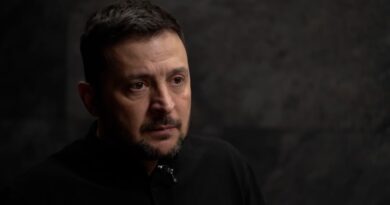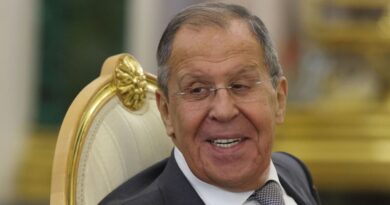EU civil war erupts as key country threatens to leave the bloc | World | News
The prime minister of the central European country Slovakia has threatened to pull the country out of alliances like the European Union and NATO, arguing that world events could consign them to the “history books”.
“It is true that the EU and NATO are our vital space, but no one will prevent us from warning Slovakia about various risks,” pro-Russia Robert Fico wrote in a statement.
The opposition leader, Michal Simecka—one of several other parties to condemn the statement—launched an attempt to dismiss the Leftist-nationalist government in a no-confidence vote on Tuesday (January 21).
The motion was subsequently withdrawn, but opposition parties have vowed to call a new no-confidence vote in the future.
In December, Mr Fico met with Vladimir Putin in Moscow, shortly after Hungary’s Viktor Orban did the same.
He has also halted military aid to Ukraine and criticised Western sanctions against the Kremlin since he returned to power in 2023.
The prime minister’s latest intervention came after Tibor Gaspar, a senior official in his Smer party, said there had been changes in the EU and NATO since Slovakia joined in 2004.
This meant, he said, that Slovakia could consider leaving in the future – an option he called an “extreme solution”.
Mr Fico said he “absolutely” agreed with Mr Gaspar, using the example of the Soviet-dominated military alliance, the Warsaw Pact, which, “collapsed within a year” and that “world events can send the EU and NATO to history books”.
On a public level, high levels of Russian disinformation have been reported in Slovakia as well as low levels of support for NATO membership.
That being said, MR Fico’s anti-Western stance has triggered public protests demanding that Slovakia remain in the EU and not move closer to Russia.
Currently, Slovakia is a member of the Schengen Area and uses the euro as its currency.
“We can only scratch our heads and wonder about Fico’s plans after he Slo-evacuates the EU,” one EU diplomat in Brussels told The Telegraph.
“It will be interesting to see a country of 5.5 million inhabitants fend for itself when faced with Trump, Xi, and Putin,” they added.
Last year, alarms were also raised in Bulgaria as voters headed to the polls and returned a combined 21% of the vote for parties sympathetic to Putin.
The GERB party, run by former three-time prime minister Boyko Borissov, won 26.4% of the vote, while the pro-EU group We Continue the Change-Democratic Bulgaria finished second with 14.9%.
However, when combined, pro-Kremlin parties actually won a larger share of the vote than the second-placed pro-Europe coalition. Vazrazhdane (Revival), an anti-NATO, nationalist party, won 12.9 % of the vote. Adding their votes to the 8.1 % won by the pro-Russian Bulgarian Socialist Party (BSP), takes the Putin-sympathisers past the second-placed coalition.





